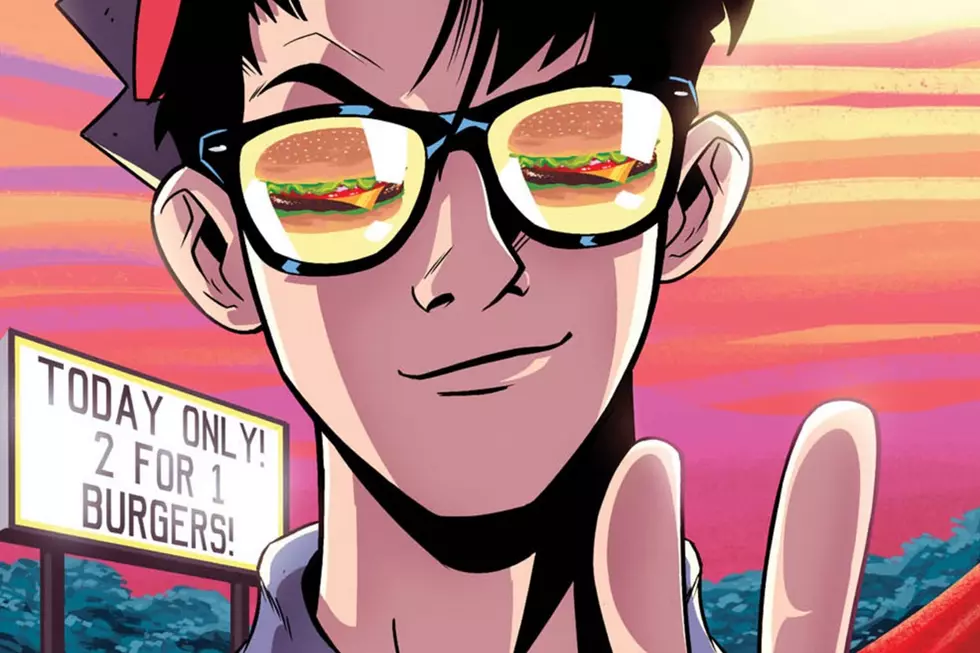
Let’s Talk About Boycotting Comics
In this column last week, I mentioned how responding to news of a creator you like doing something indefensible with a boycott could have some unintended consequences, such as damaging the careers of artists who took a job with an established writer, perhaps not knowing about all the associations that came with it. A lot of times, those artists could use all the support they can get to help their careers take off.
A few folks on Twitter -- friends of mine -- took issue with that, saying I was concern trolling. That people who associate with creators who do bad things deserve the harm, too. Or that the damage to the person who transgressed is worth the collateral damage that comes with it.
In the days since, I've been thinking about it a lot. On the one hand, I don't want to create problems for, lacking a better term, "innocents." On the other, I have no problem sitting at home and not going to see Ender's Game because of views one person, Orson Scott Card, expressed, though I know hundreds of other people, also "innocents," were involved in the production. That might make me a hypocrite -- certainly I don't claim to be any kind of moral bastion. It's also just really, really complicated. There are a lot of factors involved.
First off, let's be clear about what a boycott is not. People, myself included, use the term way too often to describe what is more accurately called "not buying something." You can avoid buying something because you just plain don't like it, you can not buy something because you can't afford it, or you can choose not to buy a comic because you have a moral objection to it. None of those things are boycotts.
Now, that doesn't mean a choice not to buy something because of a moral or ethical stand isn't worth doing. I know people who choose not to buy Marvel books, comics they really want to read, because of the way creators have been treated over the years, and that's absolutely valid. As an exercise in willpower and doing the right thing, it's admirable.
Still, I looked at a bunch of definitions of the word "boycott" to write this column, and while some of them stopped at the simple "not buying" definition, most had something about how a boycott has to be a "concerted" effort, or that people have to "combine" to do it. That's the only way to have an economic effect. You can vote with your dollar, but the thing about voting is that it takes at least a plurality to win.
But let's really be honest about what kind of impact even that has. In comics, where the scale is a lot smaller than, say, blockbuster sci-fi movies, a group of readers dropping a book may be more than a drop in the bucket. But this is a medium where books often lose thousands of readers from issue one to issue two, or from one month to the next, and here's the thing: Publishers are guessing at why.
Let's imagine a scenario in which the actions of a writer were so discouraging that a huge chunk of the readers of one of that writer's books stop buying it cold turkey. Those numbers come back to the publisher, and they start wondering why. Their first thoughts are going to be that maybe this genre doesn't sell, or maybe this artist doesn't sell, or that some plot event pissed people off. Unless it's something very high-profile -- caught on tape and broadcast nationally, maybe -- the real-life actions of the writer won't even be on the list. They certainly wouldn't be if those actions were relegated to rumors.
And that's where another major factor comes in. You can't just not buy something and expect to effect the change you want. You have to group together, not buy it, and then make it public why you aren't buying it. The groups that boycotted Ender's Game did a really good job of saying why they're not going to see it, amassing numbers, getting people to sign petitions, and even nabbing press coverage. When the executives look at the box-office figures, the efforts to boycott the movie will be part of the discussion, even if they dismiss it. It can't be ignored. (Whether the boycott worked or not is up for debate. The movie was No. 1 at the box office last weekend, though its numbers weren't exactly amazing when compared to its budget.)
Sometimes it's hard to be vocal about a boycott, though, either because the reasons are vague ("creator treatment" could refer to lots of different cases, and it's a pattern rather than one clear-cut incident) or as in the case I talked about last week, the details are impossible to confirm, or the problem goes well beyond one offender. With Orson Scott Card, you can point to stuff he has written about gay marriage. It's rarely that precise.
So that's the long and short of it. If you want to feel like you're doing the right thing, just don't buy something. If all you want to do is hurt a transgressor, get a lot of people not to buy it. But if you really want to make something happen, you've got to make your boycott a campaign.
Voting with your dollar is a lot harder than it seems. It isn't just something that happens at a cash register.
More From ComicsAlliance









